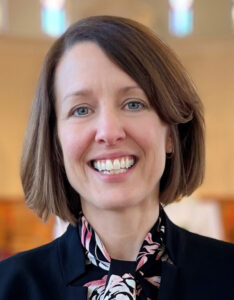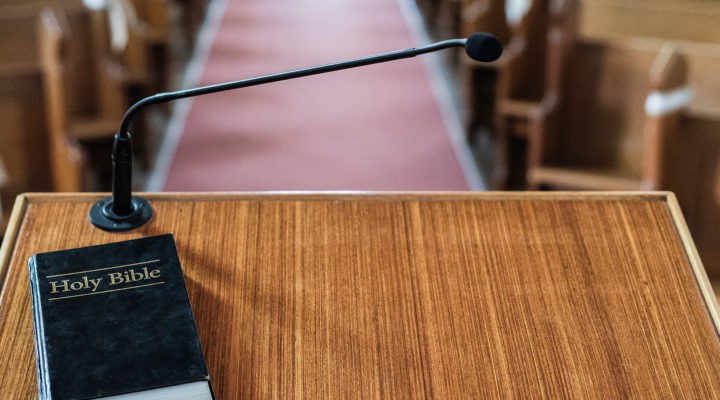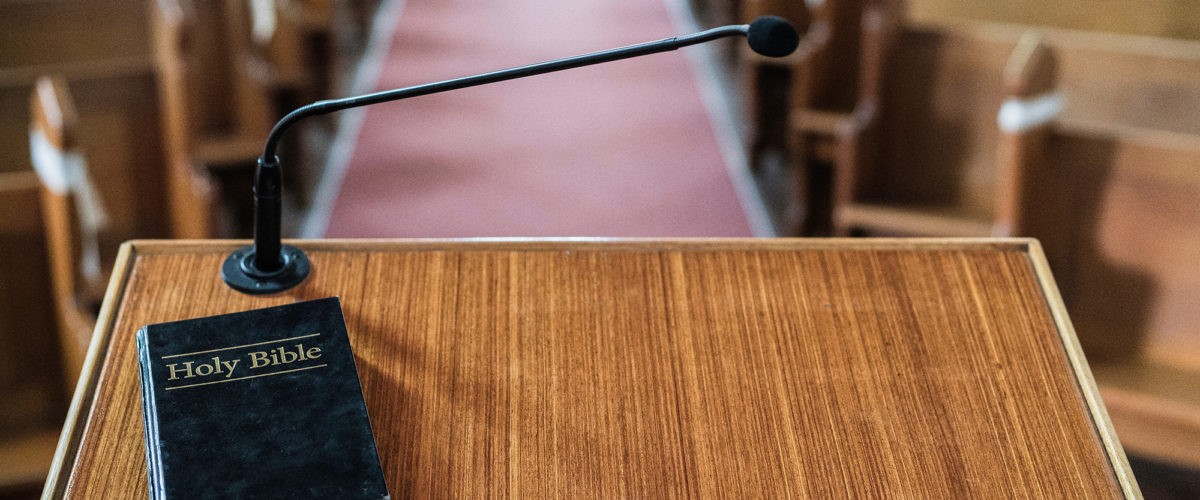Baptist churches may soon face clergy shortages like other faith traditions. Emily Brown, in a February 2022 Relevant article, “The Great American Clergy Shortage is Coming,” noted: “Roughly 3,544 Catholic parishes in the U.S. lack a parish priest,” and “in the Reformed Jewish denomination, between 5% and 10% more congregations are searching for a rabbi than in a normal year.”
A survey we conducted last fall suggests Baptist churches could now or soon will be struggling in calling new pastors due to fewer available clergy.

Pam Durso

Carol McEntyre
Our survey, initiated on Oct. 17, 2021, was an attempt to understand the increasing numbers of resignations of Baptist pastors in 2020 and 2021. We invited pastors who had left their Baptist congregations between July 1, 2020, and October 17, 2021, to participate. For the survey, the definition of “pastor” included those serving in senior, associate, youth, children, music, college and other staff positions in congregational settings. In the 17 days the survey was open, 100 pastors responded.
One of the survey’s most distressing findings was that many pastors walked away from congregational ministry altogether. Only 26% of our respondents resigned to accept new congregational ministry positions. Sadly, 72% left congregational ministry entirely upon their resignation. Of those 72%, 5% were retiring, another 5% left to pursue further education, and 33% took jobs in non-congregational positions.
However, the most distressing finding was that 29% of respondents who had left their churches had secured no other position at the time the survey was conducted, and they were taking time away from work.
“The most distressing finding was that 29% of respondents who had left their churches had secured no other position at the time the survey was conducted.”
Statistics can be numbing, so let’s pause for a moment. In 15 months, 29 Baptist pastors left their positions with no place to go — vocationally. The difficulty of ministry in 2020 and 2021 was personally and professionally so overwhelming and exhausting that these ministers chose (or their church chose for them) to leave with no plan for their future.
While Baptist pastors being fired or pushed out is certainly not new, 29 out of 100 seems like an extraordinarily high number. Unfortunately, we have no historical data for comparison. However, because of our survey, we do have feedback from the pastors who have left their churches.
One pastor noted the church’s leadership had embraced a business culture, resulting in a “deep disconnection from and dismissal of holistic and healthy lifestyle for ministers and, therefore, congregants.” Another retiring pastor wrote, “the deacon vice chair chewed me out publicly in the parking lot. It was at that point that I began to plan my retirement day.”
A pastor who left to pursue a lifelong dream stated, “The despair I felt in congregational ministry was in stark contrast to the euphoria I experienced in pushing my lifelong dream. … I felt the call away from the institutional church which was depleting life energy and moved toward that which gave me life energy.”
Other pastors who left with no job in sight used the following descriptors about their congregational experience: burnout, mistreatment by the church, cultural differences, authoritarian structures, political infighting, power struggles, toxic, false accusations, and unrealistic expectations.
To make ends meet, one pastor drove for Instacart and worked at a call center. Another stated, “I am unsure as to whether I will choose to serve in a clergy role again.” And finally, one noted, “When I think about applying for other church jobs my stomach just churns. Since leaving the church, my blood pressure is down, I don’t need sleep medications, and I just feel better.”
“When I think about applying for other church jobs my stomach just churns.”
These experiences and feelings of pastors mirror those of workers across professions who were part of the society-wide Great Resignation of 2020 and 2021. Emma Goldberg, in a May 13, 2022, New York Times article, observed that resigning workers realized “they could find better ways to earn a living. Higher pay. Stable hours. Flexibility.”
Goldberg quoted office administrator Porsha Sharon: “The last generation, they were miserable in their jobs, but they stayed because that’s what they were supposed to do. We’re not like that. … We’re like, ‘This job is overworking me. I’m getting sick because my body is shutting down, and I’m over it.’”
Many pastors in 2020 and 2021 also were “over it” and decided they no longer could remain in their churches.
While we certainly sympathize with the pastors who resigned, we are also concerned about the future and who will lead our churches.
As it turns out, our survey also revealed that those who resigned were primarily mid-career, experienced pastors. Of the 100 pastors who participated in the survey, 32 were in the 40 to 49 age range, and 28 were in the 30 to 39 age range. Moreover, with only three exceptions, these 60 pastors had six to 25 years of ministry experience. Our sense from these survey findings is that Baptists lost a significant number of trained, equipped and seasoned pastors, those who presumably would be more prepared to serve churches through the current challenges in congregational life.
In other words, the pastors we need the most are the ones we have lost during this season of escalated resignations.
“The pastors we need the most are the ones we have lost during this season of escalated resignations.”
Many of these mid-career experienced pastors, with several decades of ministry ahead of them, indicated they had no plans to return to congregational ministry. Add to this reality the decline in enrollment in 2021 of full-time students at seminaries, which means fewer young ministers will be trained to step into pastoral roles. Thus, we have lost mid-career experienced pastors and we recognize there may be fewer young ministers coming down the Baptist pipeline, and the question we have now is: Who is going to serve as pastor of our churches?
Where will our churches, small and large, find qualified, trained, healthy pastors? Will there be enough ministers to lead our churches in the next five or 10 years? Or even next year?
Editor’s note: The authors will present a workshop on their survey findings at the Cooperative Baptist Fellowship General Assembly in Dallas on Thursday, June 30, at 1:30 p.m.
Carol McEntyre serves as pastor of First Baptist Church in Columbia, Mo., and is immediate past moderator of the Cooperative Baptist Fellowship. Pam Durso serves as president of Central Seminary.
Related articles:
Leaving church: So many Baptist resignations
Leaving church, part 2: The Great Baptist Resignations and COVID


